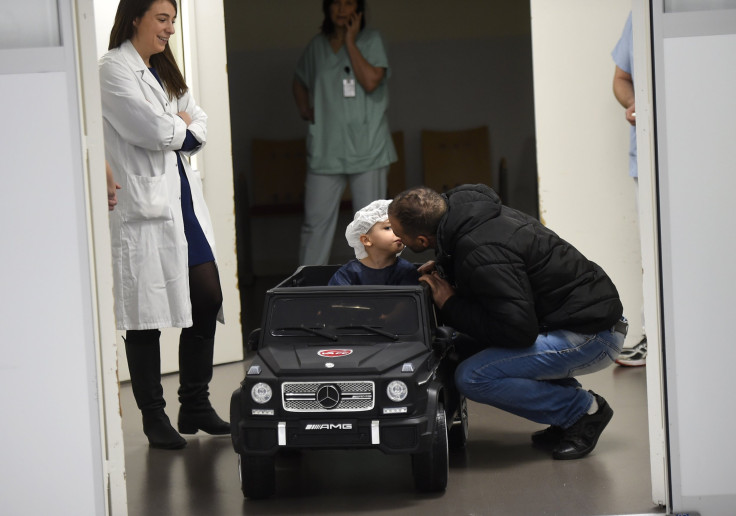What is Sly Syndrome? Queens Boy Makes Miraculous Recovery After Experimental Treatment

A Queens, New York, boy suffering from a rare disease made a remarkable recovery, thanks to an experimental enzyme treatment.
Matthew Evangelista was 11 years old when he was diagnosed with an extremely rare degenerative disease called mucopolysaccharidosis type VII or sly syndrome. It is a progressive inborn error of metabolism which causes “growth retardation, skeletal abnormalities, changes in bones visible on X-rays (dysostosis multiplex), and some degree of intellectual disability," as defined by RareDiseases.org, official website for the National Organization for Rare Disorders.
The genetic condition is so rare with less than 100 cases reported in the United States so far. Many patients suffering from sly syndrome die at birth or soon after while a few live into their early adulthood.
Evangelista’s mother, Helen, feared the same for her boy five years ago when he was first diagnosed. However, thanks to an experimental enzyme treatment known as “Mepsevii," Evangelista not only made a considerable recovery but also became the first patient in the U.S. to receive the treatment.
When speaking about her son and his recovery, Helen told the New York Daily News that Evangelista’s condition worsened in 2013 as he was unable to breathe without the help of a respirator, and the carbon dioxide in his blood hit frightening levels.
Evangelista, who has been living at St. Mary’s Hospital for Children in Bayside, New York, since the age of two was not expected to survive. “I thought I lost him already,” Helen said.
However, Helen appreciated the experimental treatment that the doctors gave him which she said turned out to be a miracle for her son.
Reports stated that Helen played a key role in getting a green light for the enzyme replacement therapy from the U.S. Food and Drug Administration (FDA). “For me, as a mother, it takes whatever; I’ll do whatever. It’s better for me to try than not try and see my son dying,” she said.
Hospital officials also supported Helen’s decision and pushed the FDA to approve the emergency use of Mepsevii for the boy.
"We went to the (FDA) and everyone agreed that this child deserved a chance at life. It was a huge effort to get this done,” said Dr. Linda Volpe, director of medical education and research at St. Mary’s.
Reports revealed that just within three days of his treatment, Evangelista’s condition started to improve drastically, with his organs returning to their normal size. His condition stabilized a month after his treatment started.
After seeing the positive results of the treatment on Evangelista, FDA, in November, approved the drug for general use.
Speaking of Evangelista’s recovery and his condition, Helen advised all the parents to never lose hope and do everything they can in order to help their child.
“This is really working for him. ..Never lose hope and do the best you can for your child no matter what because you don’t know what tomorrow brings,” she said.
© Copyright IBTimes 2025. All rights reserved.






















